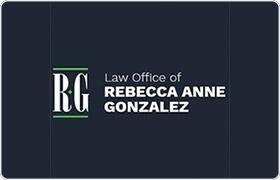 San Antonio Family Law Lawyers, Texas
San Antonio Family Law Lawyers, Texas
Sponsored Law Firm
-
 x
x

Click For More Info:
-
Law Office of Rebecca Anne Gonzalez
10101 Reunion Place Suite 615 San Antonio, TX 78216» view mapDivorce & Family Law Continuing The Gonzalez Legacy
At the Law Office of Rebecca Anne Gonzalez, my goal is to make certain you feel taken care of. My team and I work hard to protect what is important to you.
800-735-1530
Includes: Collaborative Law, Domestic Violence & Neglect, Paternity, Prenuptial Agreements
Sponsored Lawyers
1-10 of 61 matches
Estate Planning, Bankruptcy, Family Law, Criminal, Commercial Real Estate
I am a Board Certified Family attorney who practices in the San Antonio, Texas and surrounding counties. I have a great deal of experience regarding family law cases, from the complex and contentious to the simple and agreed. I understand military matters, in part because of my military service in the United States Air Force.
(more)


 Rebecca Gonzalez San Antonio, TX
Rebecca Gonzalez San Antonio, TX Practice AreasExpertise
Practice AreasExpertise

